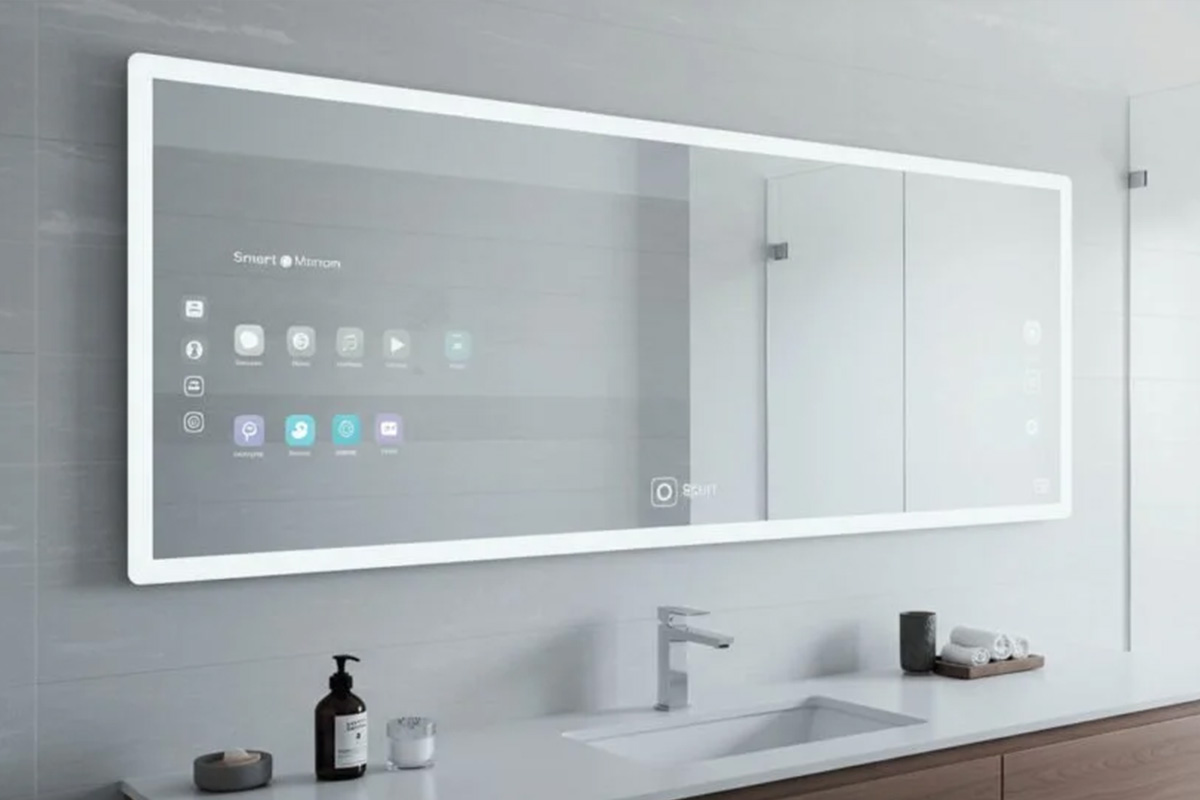
What Are the Benefits and Drawbacks of Using a Smart Mirror?
Smart mirrors are a perfect blend of innovation and practicality, transforming the way we use traditional mirrors. With advanced features like touchscreens, voice control, and app integration, these high-tech devices are changing modern living spaces. In this guide, we’ll explore the key advantages and disadvantages of smart mirrors to help you decide if they’re the right fit for your lifestyle.
Advantages of a smart mirror

Advanced Functionality
Smart mirrors go far beyond reflecting your image. These products combine modern tech with everyday convenience, offering features that simplify your routine. From displaying the weather to syncing with smart home systems, smart mirrors improvise your daily experience with enhanced functionality.
Customization Options
One major advantage of smart mirrors is their high level of customization. From display settings to frame finishes, users can personalize features to match their style and needs, making each smart mirror a unique addition to their space.
Seamless Integration
Smart mirrors easily connect with other smart devices via Bluetooth, USB, or HDMI, making them a central part of your smart home setup. This integration can offer greater convenience and control in your daily routine.
Multimedia Features
Smart mirrors aren’t just for reflection they also serve as entertainment hubs. With built-in LED screens and app support, you can stream Netflix, watch YouTube, or browse content right from your mirror.
Sleek and Modern Design
Smart mirrors combine cutting-edge tech with elegant, minimalist design. Their sleek look enhances any space, making them both a functional upgrade and a stylish decor element.
Disadvantages of a Smart Mirror

Costly
While smart mirrors offer advanced features, their premium tech and materials often make them expensive, putting them out of reach for budget-conscious buyers.
Installation Challenges
Unlike regular mirrors, smart mirrors often require professional setup due to complex wiring and tech components adding to the overall cost and effort.
Technology Dependence
Smart mirrors offer great convenience, but they rely heavily on tech. Software bugs, connectivity issues, or system glitches can disrupt the smooth experience and require regular updates or troubleshooting.
Privacy Concerns
Some smart mirrors include cameras and sensors, which can raise privacy and security concerns. The idea of a device potentially capturing images or activity in private spaces may be unsettling for privacy-conscious users.
Limited Compatibility
Smart mirrors may not work seamlessly with all smart home systems. Compatibility issues can arise, especially when integrating them into existing setups causing frustration for users.
Conclusion
Smart mirrors blend technology and style, bringing modern convenience to everyday routines. With features like customization, multimedia access, and smart integration, they offer plenty of benefits but also come with drawbacks like high cost and privacy concerns. In the end, choosing a smart mirror depends on your lifestyle, needs, and comfort with tech.
